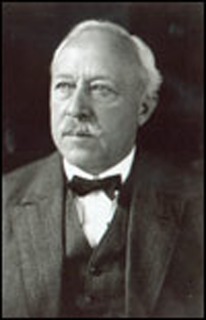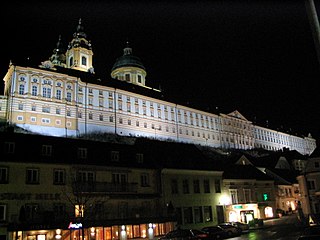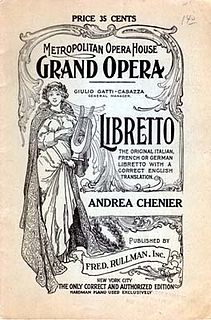
A libretto is the text used in, or intended for, an extended musical work such as an opera, operetta, masque, oratorio, cantata or musical. The term libretto is also sometimes used to refer to the text of major liturgical works, such as the Mass, requiem and sacred cantata, or the story line of a ballet.

Gustav Albert Lortzing was a German composer, actor and singer. He is considered to be the main representative of the German Spieloper, a form similar to the French opéra comique, which grew out of the Singspiel.
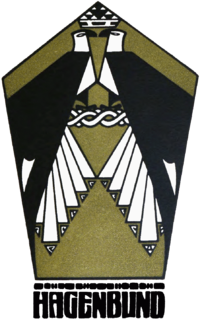
The Hagenbund or Künstlerbund Hagen was a group of Austrian artists that formed in 1899. The group's name derived from the name Herr Hagen, the proprietor of an inn in Vienna which they frequented.
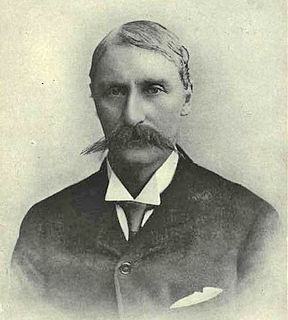
Alfred Cellier was an English composer, orchestrator and conductor.
Rudolf Lothar [rú:dolf ló:tar] was a Hungarian-born Austrian writer, playwright, critic and essayist.
The German parliament or Reichstag that was elected in the general election of May 1928 and sat until that of September 1930 was the fourth parliament of the Weimar Republic.
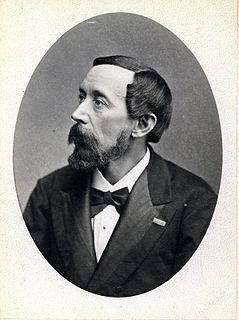
Franz Friedrich Richard Genée was a Prussian born Austrian librettist, playwright, and composer.

Salomon Hermann Mosenthal was a writer, dramatist, and poet of German-Jewish descent who spent much of his life in Austria. He was also known for his opera libretti. His name is also sometimes written as Hermann Salomon von Mosenthal, Solomon Hermann Mosenthal, or Solomon Hermann von Mosenthal.
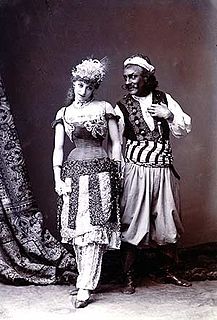
Robert Reece was a British comic playwright and librettist active in the Victorian era. He wrote many successful musical burlesques, comic operas, farces and adaptations from the French, including the English-language adaptation of the operetta Les cloches de Corneville, which became the longest-running piece of musical theatre in history up to that time. He sometimes collaborated with Henry Brougham Farnie or others.
Heinrich Bulthaupt was a German poet, dramatic author, and lawyer, as well as librarian of his native town, Bremen. Many of Bulthaupt's works found considerable widespread popularity in the lyrical and dramatic genres.

Andrea Maffei was an Italian poet, translator and librettist. He was born in Molina di Ledro, Trentino. A follower of Vincenzo Monti, he formed part of the 19th-century Italian classicist literary culture. Gaining laurea in jurisprudence, he moved for some years to Verona, then to Venice and finally to Milan, where in 1831 he married contessa Clara Spinelli. They separated by mutual consent on 15 June 1846.

Hans Sommer was a German composer and mathematician.

Eugène Leterrier was a French librettist.
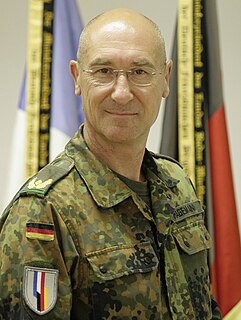
General of the Infantry is a former rank of German Ground forces. Present it is an appointment or position to an OF-6 rank officer, responsible for particular affairs of training and equipment of the Bundeswehr infantry.
Leo Feld was an Austrian librettist, dramaturge, stage director, and writer. He also worked as a translator for publishing companies, and was notably responsible for translating many of Charles Dickens' English language works for their first German language publications.
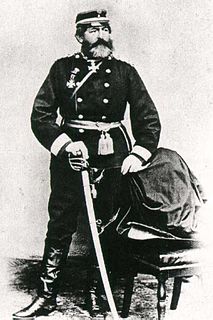
Duke Eugen of Württemberg was a German prince.
Christian Heinrich Postel was a German jurist, epic poet and opera librettist, who wrote 28 libretti for the Oper am Gänsemarkt in Hamburg: set by composers such as Johann Philipp Förtsch, Reinhard Keiser and Georg Philipp Telemann. His texts for a St John Passion were set by composers Christian Ritter, Johann Mattheson and Johann Sebastian Bach in their respective St John Passion.
Arnold Mortier was a 19th-century French journalist, playwright, and librettist.

Albert Socin was a Swiss orientalist, who specialized in the research of Neo-Aramaic, Kurdish and contemporary Arabic dialects. He also made contributions to the geography, archaeology, religion, art and literature of the Middle East.


